A Salvo of 17 Syllables
Noted haiku poet Kono Saki creates anti-war haiku while recalling the role of this poetic form during World War II. As both a poet and a mother, what will Kono say in the short space of seventeen syllables?
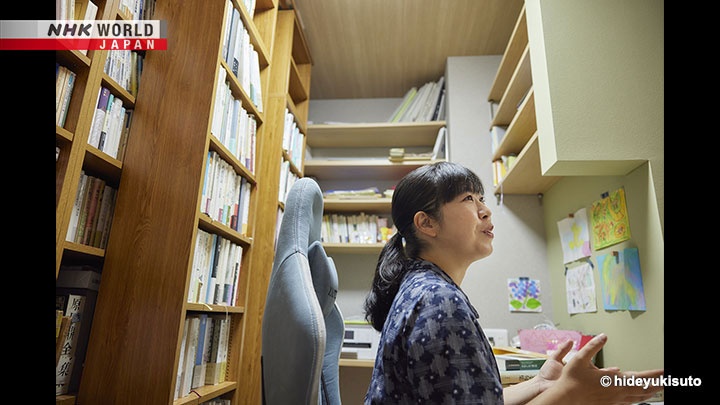
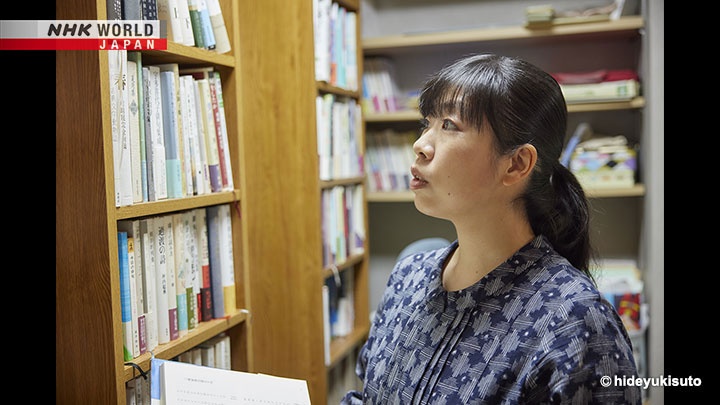
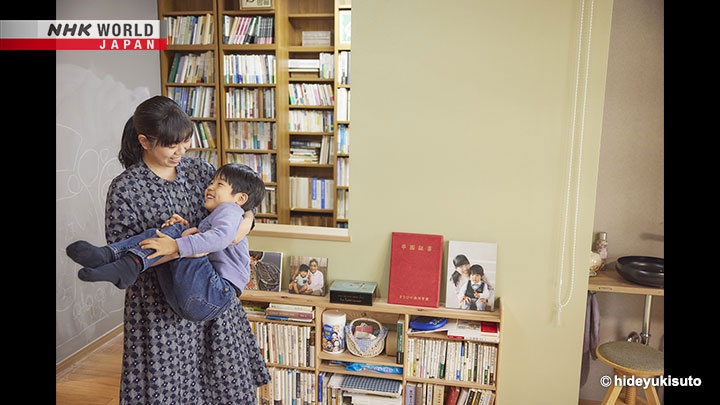
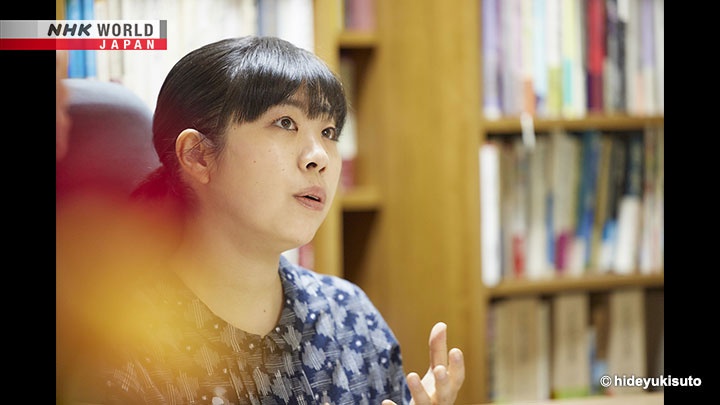
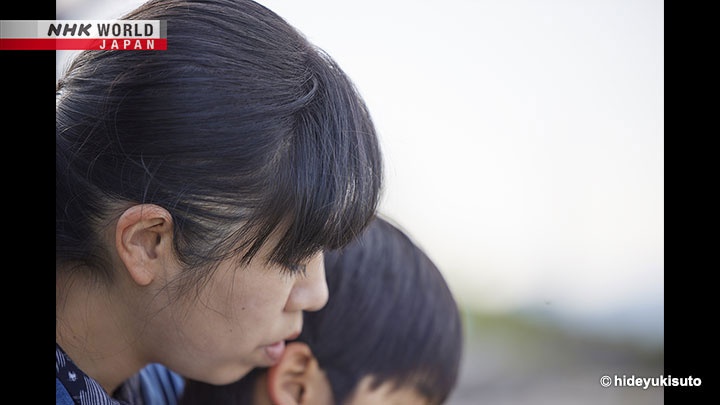
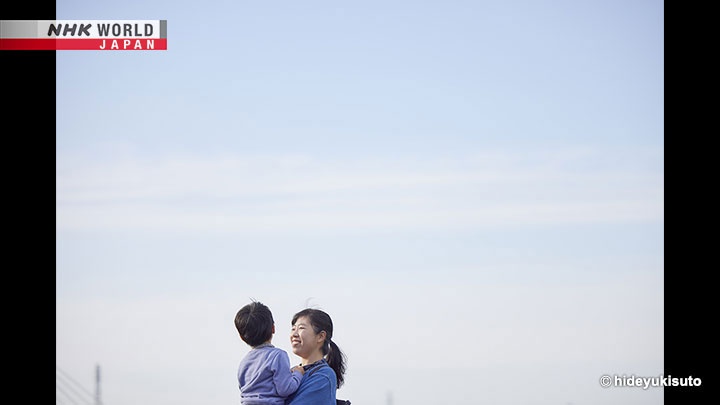
Transcript
Look at all these dodan-tsutsuji.
An Indian journalist once
said in an essay that
no one takes more pictures
of wayside flowers than the Japanese.
Think of a violet,
perhaps with a ladybug on it.
The haiku zooms in on tiny things,
and lets you see how noble,
how precious they are.
That's the magic of haiku.
It's a tulip!
What a nice surprise.
It must have bloomed from
an abandoned bulb,
all by itself,
with the coming of spring.
Haiku is said to be the
world's shortest poetic form.
Kono Saki is one of Japan's
leading young haiku poets.
I heard on the news that a hospital
with pregnant women was bombed.
Those women gave birth
one after another
in an underground shelter.
I wrote a haiku of mimosa
and the sea, yellow and blue,
to express my solidarity
with Ukraine.
"Mimosas by the sea
From the rubble comes
a newborn's first cry.
Kono Saki"
Recently, more and more people
have written haiku on Ukraine,
at workshops and contests,
or as newspaper submissions.
Some of those haiku reflect
the writers' own war experiences,
which they've come to recall
because of Ukraine.
In Japan, there are still people
who remember World War II.
Here is one haiku on a Kyiv dancer.
"February's gone.
The dancers from Kyiv,
where are they now?
Toushima Kayoko"
It was reported that
ballet dancers, too,
had joined the battlefield,
as soldiers.
This haiku writer is wondering,
worriedly,
if the dancers are safe.
"Planting potatoes
by the bronze statue
of Tolstoy."
This haiku on Tolstoy's statue
must be about Ukraine and Russia.
Who wrote this?
Ah, Fumiko.
There's a statue of Tolstoy
in front of a memorial hall
at Showa Women's University,
where a haiku contest was held.
I was sitting on a bench
looking up the statue,
and I thought of this
season term, "planting potatoes."
"Planting potatoes
by the bronze statue
of Tolstoy.
Okamoto Fumiko"
The statue made me think about
the meaning of war and peace.
It was a memorable experience.
Tolstoy's masterpiece,
"War and Peace."
Keeping ourselves grounded,
cultivating potatoes,
perhaps that's part of
Tolstoy's vision, too.
It was just a statue,
but by mentioning it,
Fumiko implies Tolstoy's message
and expresses her sympathy.
This haiku lets the objects
speak for themselves.
- I fell.
- Did you? Where?
- At the after-school.
- After-school?
You slipped?
Or did you trip on something?
- You're so fast!
- Ready, go!
Go, go, go...
Made it!
- Wanna go down?
- Yeah.
Do you know those yellow flowers?
They're canola flowers.
They bloom all over Ukraine,
but there's a war now.
Is Russia killing the flowers?
Yes, you could say so.
- Guns...
"Throw down your weapons
From here on out,
this is the land of canola flowers.
Kono Saki"
There were two opposing parties.
One was the Literary Patriotic Association,
which backed up the nation's
war policy through literature.
The haiku section was led by
Takahama Kyoshi,
who was, and still is,
renowned as a great haiku poet.
Poets were encouraged to
enhance national prestige and
edify the country with haiku.
Many pro-war haiku
were produced.
With certain restrictions, though.
A winter season term,
"withered chrysanthemum,"
couldn't be used, as
it symbolizes the emperor.
To say "withered chrysanthemum"
would be considered treason.
Haiku is the art of gaps.
This allows for interpretations,
even malicious ones.
On the other hand,
there were poets,
mostly young ones,
who were against the war.
Some of them
had lost family to war.
Their work was called Shinko Haiku
(New Rising Haiku).
The Shinko Haiku poets were
suppressed between 1940 and '41
under the Peace Preservation Law.
A young poet called Watanabe Hakusen,
who was arrested under the Law,
created this haiku.
War stood at the end of the hallway.
"War stood at the end of the hallway
Watanabe Hakusen (1913-1969)"
It was written in 1939, when
the war felt distant, perhaps.
But Hakusen places it at
the end of the hallway,
in the home,
in a private space.
Not a soldier,
nor the military police,
but the unknowable idea of war,
just waiting in the darkness.
"Raising a fist
like a cockscomb flower
with his dying breath.
Tomizawa Kakio (1902-1962)"
Cockscomb is an autumn flower,
thick and crimson,
that resembles a rooster's comb.
This cockscomb flower
is the raised, bloodstained fist
of a soldier, dying alone
on the battlefield.
What a raw, compelling use
of this vivid, visceral flower.
- What's that?
- Russia.
- And where is Ukraine?
- It's near Russia, here.
"Ukraine."
Look, Mom. This purple zone.
Look at Russia. It's so large.
And Ukraine is so small.
Here are some haiku by a Ukrainian
haiku poet, Vladislava Simonova.
She lives in Kharkiv,
near the Russian border.
A journalist received and published
the haiku in the paper.
One of them reads,
"An abandoned house.
Stars are seen
Through the broken roof."
"An abandoned house.
Stars are seen
Through the broken roof.
Vladislava Simonova"
The stars seen through
a broken roof seem distant.
But you can also sense the
human instinct to see beauty
amid the pain and misery.
There is a haiku by Kobayashi Issa.
"The beauteous sight
of the Milky Way glimpsed through
holes in the sliding door."
"The beauteous sight
of the Milky Way glimpsed through
holes in the sliding door.
Kobayashi Issa (1763-1827)"
Issa was so poor that
he couldn't even repair
the holes in the shoji,
a kind of paper sliding door.
But he praises the beauty of
the stars seen through the holes.
Haiku poets tend to look for
beauty in hardship.
That's their spirit,
a kind of haiku pride.
I feel the same haiku spirit
in the Ukrainian poet,
in her unyielding expression.
Her haiku transcend
the realities of war.
She faces and poeticizes
the irrationality of life
with the same language as Issa.
- Mom, carry me.
- Okay, I'll try.
It was fine when he was little.
Now he's so heavy.
You still like being carried
like this, don't you?
- Are you tired?
- No, because I love you.
"The sleeping child
weighs like a corpse in my arms
under the hazy moon.
Kono Saki"
At the start of
the Russian invasion,
I saw on TV a 6-year-old girl
being brought to the hospital
by ambulance.
She died in the end,
despite the doctors' efforts.
She already looked unconscious
when she arrived at the hospital.
Her mother was running
after the stretcher,
grasping a tiny bag
or a jacket in her hand.
My son has just turned 6.
I feel his full weight
when he is asleep,
since he doesn't hold onto me.
One day when I held him up,
I remembered the Ukrainian girl.
She must have been
as heavy as my son.
A sleeping boy and a dead girl
would weigh the same, right?
"The sleeping child
weighs like a corpse in my arms
under the hazy moon."
Go ahead!
What can haiku do?
I know it won't stop the war.
But to know what happened,
that's important.
We might make the same mistakes
if we don't know the history.
I have no choice but to write.
Each one of us may be a victim
of war, or an aggressor,
no matter how far away
the battlefield is.
We all are hurt in some way,
in our respective circumstances.
To put that into words,
and to provide healing,
I think that's what
can be done with haiku.